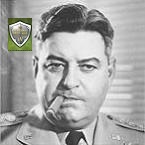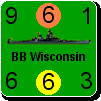warspite1
Posts: 41353
Joined: 2/2/2008
From: England
Status: offline

|
quote:
ORIGINAL: warspite1
quote:
ORIGINAL: warspite1
quote:
ORIGINAL: warspite1
I've started reading The Naval War in the Baltic 1939-45 (Grooss)
Okay start - the author writes in a clearly understandable and easy to read way, but he's spent the first chapter giving a very potted history of countries that border the Baltic Sea. Not uninteresting in itself, but too little to be really useful and so not really sure that this was needed.
I read on.....
warspite1
Given all the talk of Dunkirk and, having fired up Decisive Campaigns: Warsaw to Paris for the first time, I think I will put this on hold and head back to the Western Front 1940 stylee.
To that end I have just started Dunkirk the Patriotic Myth (Harman).
warspite1
Well it's good to read books from all sides - but its not necessarily a good thing for the old blood pressure.
First couple of chapters down and I have to say the book is well written, not by any means a difficult read. But clearly the author has a particular weed up his behind and falls over himself to get dig after dig in.
As a classic example, he pointedly refers to the fact that the British did not respond to Queen Wilhelmina's request for assistance... but the French did. But having made that point he then fails to provide any context. He singularly fails to explain that French assistance was all part of Gamelin's disastrous Breda Variant that took away the French 7th Army from the reserves (and that would otherwise have been available to aid the defenders of the Meuse). i.e. the French coming to the aid of the Dutch was already in the plan - not some extra assistance that the French conjured out of thin air 
Oh well, I suppose the book helped with his pension planning....
warspite1
Finished this book. Here is my review - but in summary don't rush out to buy this book 
This is a very poor effort.
It avoids one star on the basis that the author writes in a very clear, easy to read style - and he makes the occasional pertinent point. But as a history of the episode, the book is - shall we be kind and say it is fundamentally flawed? Simple, basic facts are wrong - Huntziger's 2nd Army don't appear to have been involved in the defence of the Meuse apparently and there is the rather shameful - if not downright dumb - inference that 400 SS troops were massacred by the Durham Light Infantry. Then there is the contention that the fighter command had 1,400 ultra-modern fighters - which he not only mentions twice but then adds that only 100 were sent to France.....
But then, working largely from secondary sources, the author has nothing new to add and so needs an angle to sell the book. That the British sought to withdraw and in so doing did not inform the French and Belgians, is not new, and as a result the author - no doubt in order to get the book published - needs to be as sensationalist as he can. He ends up simply repeating the same thing - each time in slightly different ways - over and over.
He provides little, if anything, by way of context for decisions that were made. There is a brief chapter in which he concedes the French were responsible for the loss of the Meuse, and he also comments on the brilliance of the evacuation operation, but otherwise there is no attempt to provide any sense of balance to the piece, and the portrayal of Lord Gort does the author no credit. All French and Belgians in and around Dunkirk and beyond were apparently desperate to attack the Germans but the British simply wanted to go home.
To give just one example of what the author misses out in order to make his monotonously repeated point, the author makes great play of the fact that the British supposedly cut and run at Arras for no good reason other than a wish to save their own skins. Gort's superior at that time was General Blanchard, commanding the French First Army Group. Blanchard's aide General Fauvelle had a meeting with Weygand and Reynaud in which Fauvelle confirmed to the French CinC and President that the French 1st Army was "so weak it would be unwise to expect it to ever mount a counter-attack" and that in his opinion he was expecting "a very early capitulation". The author does not mention this meeting - nor does he make any comment on the state of the French forces at the time. Similarly there is no comment on General Billotte's state of mind at the time. Balanced? I don't think so.
Many (most?) French historians today are honest enough to admit that the French were defeated by the time the British began to think of evacuation and if one wants to read properly researched books that tell the true story in a balanced, grown up fashion there are plenty of better books - and documentaries - on the subject.
< Message edited by warspite1 -- 9/21/2017 6:20:10 AM >
_____________________________
England expects that every man will do his duty. Horatio Nelson October 1805  |
 Printable Version
Printable Version

























 New Messages
New Messages No New Messages
No New Messages Hot Topic w/ New Messages
Hot Topic w/ New Messages Hot Topic w/o New Messages
Hot Topic w/o New Messages Locked w/ New Messages
Locked w/ New Messages Locked w/o New Messages
Locked w/o New Messages Post New Thread
Post New Thread